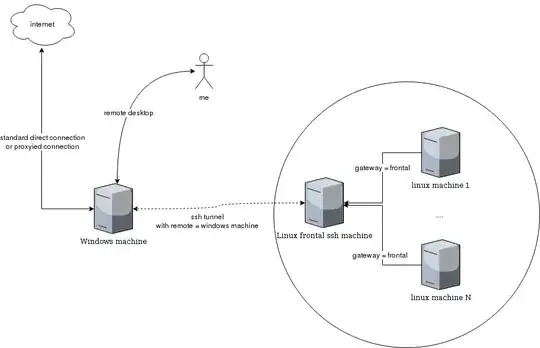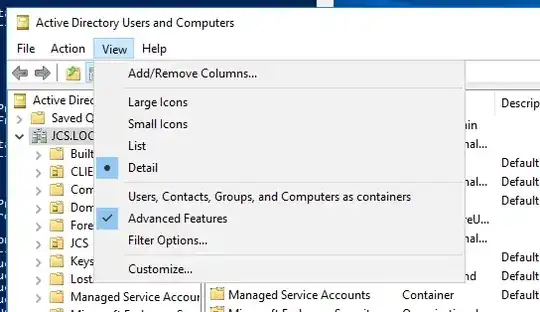We have access to a secure linux infrastructure through a Windows machine. The linux infra has no access to internet, but the Windows machine has.
On this windows machine, we have installed putty, and can connect to the linux infra with it. We can set up tunnels from the windows machine to the linux infra, in both directions (local and remote).
What I'm wondering is whether we could give the linux infra an internet access through the Windows host, via a remote tunnel using putty.
We only need http/https access, because this is for debian security updates and new machines provisioning (which right now cannot install any package due to lack of internet access).
The schema is quite clear in my mind, but I don't know how to implement it in practice:
I think I would need a sort of http proxy on the windows machine, that listens on the port that the remote tunnel directs to?
How to configure the frontal ssh machine so that other hosts using it as gateway connect through the ssh tunnel?
Also, how will DNS work in this case?
Thanks for pointers!

